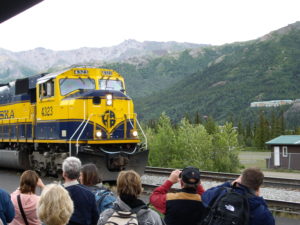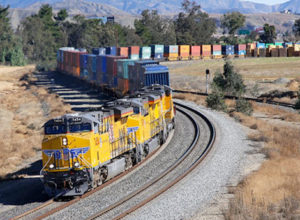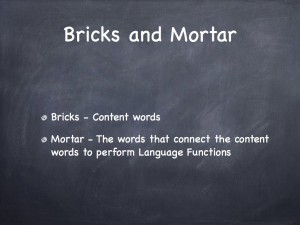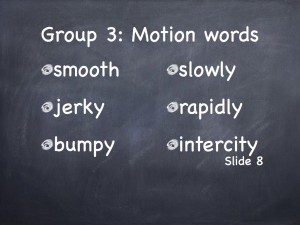Welcome to the Episode 13 page for Ramping Up your English. We have an enchanting train ride and we’ll show you how to tame a large vocabulary list. Click here to watch Episode 13. Click here for the Archive.org version (Ad free).
If you’re watching our program in segments, click on the desired segment below:
Language Objectives: Use prior knowledge, grouping by sub-topic, and dictionary skills to learn the meanings of words used in a content unit. Apply vocabulary strategies to find words meanings before using a dictionary.
Academic Content Objectives
Geography: Describe the land forms along the route of the Coast Starlight. Name the mountain ranges crossed by the Coast Starlight. Name some Northwest major cities. Engineering: Name and describe the structures and construction features utilized by Southern Pacific Railroad in the Cascade Mountains and how they enabled year-round operation of the railroad. Weather and Climate: Identify the seasonal weather patterns in Western portions of the Pacific Northwest and relate how they affect transportation.
Video Clips included in Episode 13
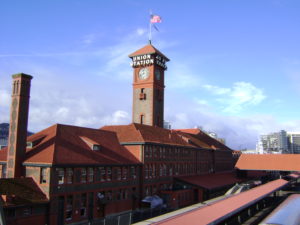
Episode 13 began with a video clip of the Coast Starlight train heading northbound from Klamath Falls to Seattle. Here’s that clip:
Amtrak’s Coast Starlight Northbound, Part 3.
Click here.
Here is another clip included in this episode. A young ELL student tells about her struggles and success when she reached a high level of English proficiency and exited the ESL program at her school. Click here to watch. The same video is on archive.org. Click here to see it.
Lesson Details
In this episode, I used a think aloud technique to model working with a large list of vocabulary words.
We started with the difference between content words, and the function words. Click on the slides below to make them bigger. Use your back arrow to return to this page.
We used a brick wall to demonstrate the difference.
We took on this huge vocabulary list.
These are examples of words one would have heard while watching our video clips about trains and railroads.
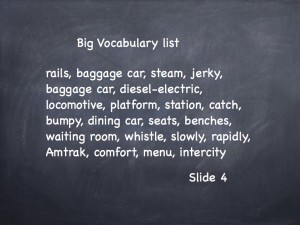
One way to tame a list of this size is to use prior knowledge and context clues to separate the words into groups. I suggested four groups, or categories.
These are the suggested categories for this list:
This was just an example of what one intermediate English speaker may be able to do after watching all these episodes about trains. The first group are physical parts of the rail system … things you can see and hear.
This list all related to Passenger trains. Most of the recent video clips have had to do with Passenger Trains.
From a recent episode, most of these words would likely be remembered.
We updated this list. now we look at these words one at a time.
We used the dictionary to find this meaning. It’s a sound, and the dictionary even said it was a sound made by trains, so we moved it to list number one.
We used the dictionary again, but it didn’t help. How could trapping an animal or getting control of a thrown object relate to trains? The word remains unknown. It’s important to let go sometimes and go on with what you can find out.
A dictionary helped here. A bench is a kind of seat. We realized this and the word seat had to do with the places you sit in the waiting room and on the train.
Looking at the last four letters, we see the word “fort,” but we can’t see how the first letters – com – make this into something related to trains. We’ll leave it unknown for now.
This one was easier than we thought. It never belonged on the list of how a train moves. The dictionary told us that the word part – inter – means between and we already knew what “city” means, so this word means between cities.
Take a look at your own list and use these strategies to find vocabulary meaning. Write words and meaning in your notebook. See if you recognize them in the next video clip you watch.
Remember, you don’t have to know every word. Ask yourself if you understand what you hear and read without knowing the word. Also, read, read, read! That’s the best way to build vocabulary.
In our book review, we learned about an organization named Rails to Trails. They reclaim abandoned railroads and turn them into recreation trails for the public to enjoy. Reading their magazine is a great way to lift your spirits, and you might learn about a rail trail near your home.
Homework
Repeat both video clips used in this episode. List 5 – 10 words that are unknown to you. Put the words in at least 2 categories.
We continue our Trains and Railroads unit in Episode 14.
